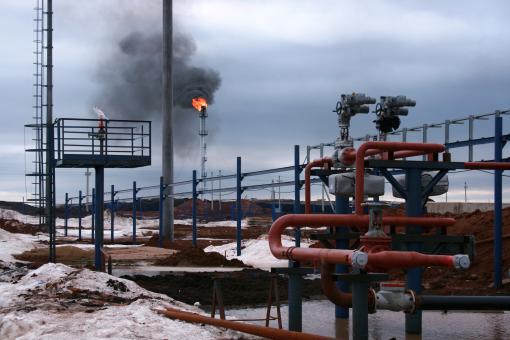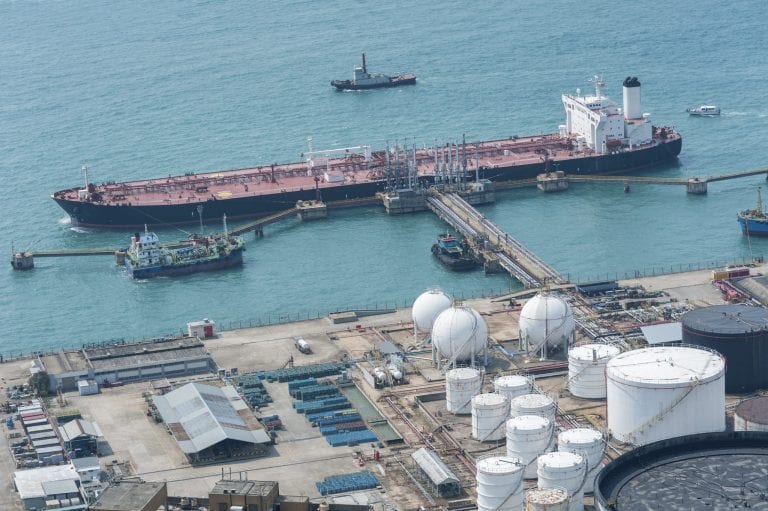
By Subcontractors USA News Provider
OPEC Secretary General, HE Mohammad Sanusi Barkindo, has embarked on a recent week-long visit to the United States for meetings with the International Monetary Fund, the United States Energy Information Administration, the Center for Strategic and International Studies, the United States Commodity Futures Trading Commission, Columbia University and IHS Markit.
Recently the Secretary General and his accompanying delegation visited energy consultancy IHS Markit in Washington, D.C., for a meeting with Vice Chairman, Dr. Daniel Yergin and senior staff members.
The Secretary General briefed Dr. Yergin and his staff on the OPEC and non-OPEC Ministerial Meeting, which recently concluded with the agreement of non-OPEC countries to reduce production by almost 600,000 b/d. He noted that extensive bilateral consultations had taken place in the lead-up to the meeting and were key factors in achieving the agreement, the first of its kind in decades.
He also reported on the recent OPEC Ministerial Meeting at which the Organization’s Member Countries decided to adjust production by 1.2 mb/d effective January 1, 2017.
The two parties also discussed oil market developments in light of these agreements, which are expected to eliminate the current stock overhang during the second half of 2017, contributing to an accelerated market recovery.
The OPEC delegation also visited the International Monetary Fund (IMF) headquarters in Washington, where they were received by Dr. Maurice Obstfeld, the IMF’s Economic Counsellor and Director of Research. Dr. Obstfeld introduced the Secretary General and his delegation to a large audience of IMF officials and staff in attendance.
The Secretary General then delivered remarks in which he underlined the importance of stability as a central tenet of both organizations.
“Our two organizations share something important: a preoccupation with stability,” he said. “The loans and technical assistance the IMF provides to developing countries – including OPEC Member Countries – are based on rigorous analytical work with the aim of fostering financial stability. At OPEC, our consensus-based decisions – which are informed by our own research and analytical work – are also designed to bring stability. And our actions – which result from negotiations among our Member Countries – are designed to foster discipline when global market conditions are often agitated or disordered.”
Following his remarks, Dr. Jorge Leon from OPEC’s Energy Studies Department presented the key findings from OPEC’s World Oil Outlook 2016, the tenth edition of the Organization’s flagship publication.
The OPEC delegation then met with analysts and staff from the IMF’s Middle East and North Africa (MENA) Department for technical discussions on the medium to long-term outlook for oil production and demand in the MENA region.
The visit also took the OPEC delegation to the Center for Strategic and International Studies (CSIS), a prominent international policy and research institution in Washington, where the Secretary General delivered opening remarks and Dr. Jorge Leon presented the Organization’s World Oil Outlook.
In his remarks, the Secretary General emphasized the importance of the United States as one of the world’s largest oil and gas consumers, making it a very important, longstanding customer to OPEC’s Member Countries.
He expressed his desire that the meetings in the United States would help open up a new chapter of dialogue and cooperation between OPEC and the United States.
“It is my hope that our meetings and consultations here will open up a new cycle of ongoing dialogue between our Organization and the United States,” he stated. “Both parties have nothing to lose and everything to gain with this type of cooperation—it is a true win-win scenario.”
He added that the recent agreements in Vienna have served as a reminder to the world that OPEC still plays an important stabilizing role in the world oil markets.
“In the last few years, there has been talk that perhaps OPEC was no longer important and that it had possibly lost the key role it has played in the world of energy since its founding,” he said. “Well, ladies and gentlemen, I am here to report to you that OPEC is alive and well. Any naysayers that may have had doubts about OPEC’s efficacy were proven wrong with the historic decisions made in Vienna at the last OPEC Ministerial Conference and between OPEC and non-OPEC countries.”
After his remarks, the Secretary General joined John Hess, Chief Executive Officer of Hess Corporation and a member of CSIS’ Board of Trustees, for a conversation and exchange of views on the future outlook for the global oil market.
The discussion was moderated by Sarah Ladislaw, Director and Senior Fellow of Energy and National Security Program at CSIS. Issues discussed included prospects for tight oil production, peak oil theories, the recent Paris Agreement, the importance of producer-consumer dialogue, the necessity of industry investment, and the prospects for future price development.
The conversation was followed by a question and answer session, during which the Secretary General and John Hess addressed questions from attendees and members of the media.
Mr. Hess concluded the meeting by stating that the Secretary General’s visit to the United States was historic and signaled the beginning of a new era of cooperation between OPEC and the United States, as well as between global oil and gas producers and consumers.
After the meeting, CSIS invited the OPEC delegation to a private roundtable luncheon attended by a prominent group of Washington-based energy experts and officials. Discussions centered on prospects for the future energy landscape, including issues related to technology advancement, energy subsidies, climate change, economic growth and oil demand.
The Secretary General and the accompanying delegation visited the United States Commodity Futures Trading Commission (CFTC), an independent agency of the US government created in 1974 to regulate futures and options markets.
Mr. Timothy Massad, CFTC Chairman, and his senior staff provided the OPEC delegation with a detailed briefing on the Commission’s duties regarding oversight and surveillance of the financial markets in relation to different commodity contracts, including West Texas Intermediate (WTI), heating oil and gasoline.
Following a question and answer session in which the delegation raised some queries regarding different methods of surveillance in the US financial market, the Secretary General expressed his appreciation, on behalf of OPEC, for the informative meeting and the close cooperation at this crucial time in which the market is in dire need of stability and investment.
Source:
Organization of the Petroleum Exporting Countries







